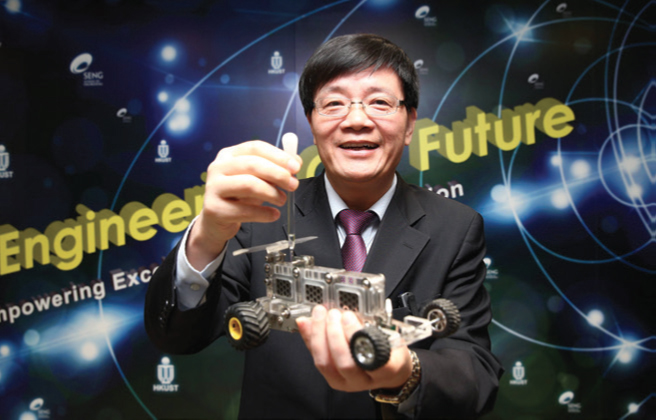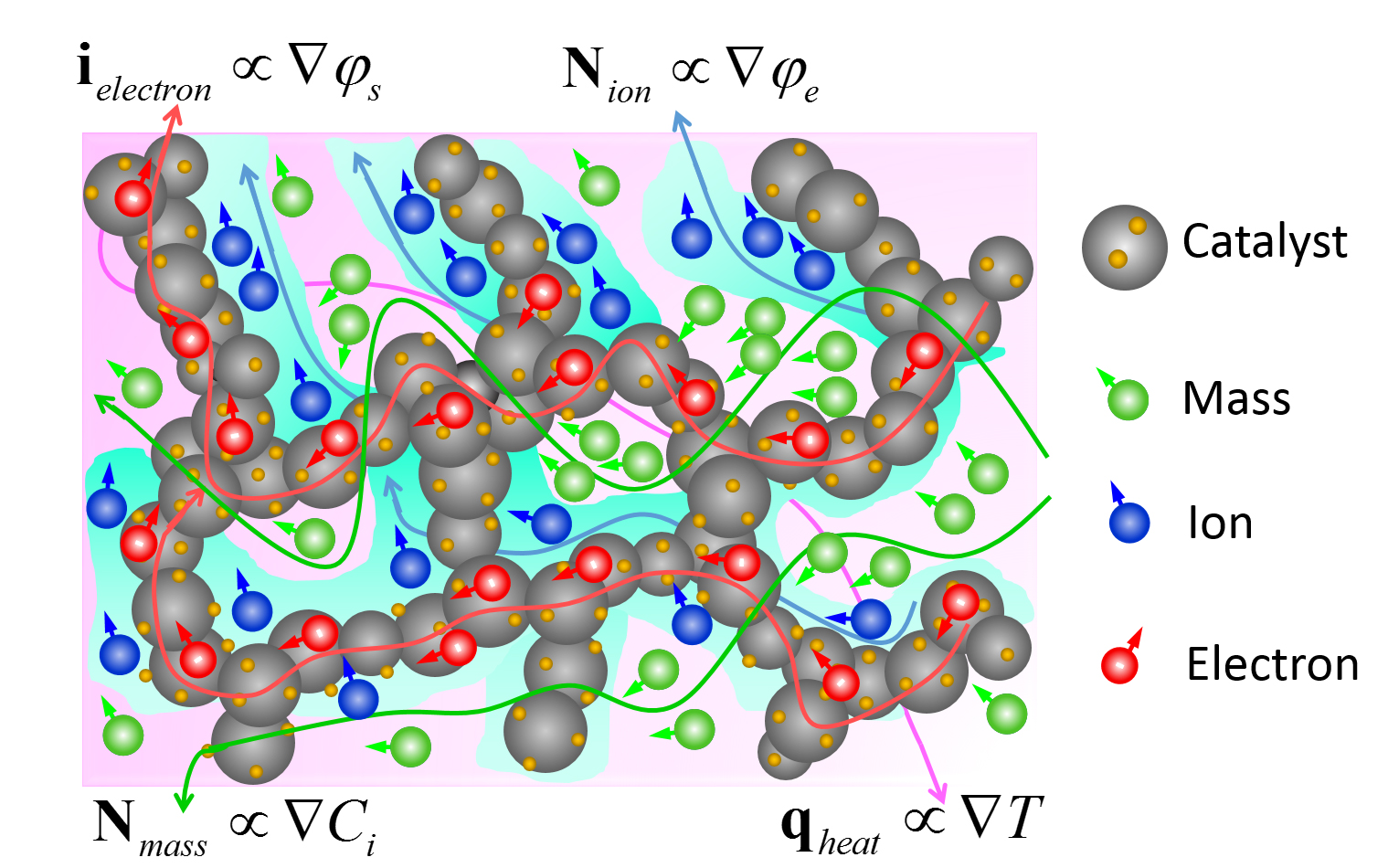E-fuel Energy Storage System


Renewable energy, such as wind and solar, is one of the most effective tools in combating climate change. Yet, widespread deployment of renewables still faces major barriers, namely the intermittent nature of solar and wind energy. Capturing wind and solar energy to be deployed whenever and wherever needed requires energy storage technology that is scalable, efficient, site-dependent, durable and safe. None of the existing technologies can meet all of these requirements.
Prof Tianshou Zhao proposes an elegant solution to address these issues, and more. With two decades of experience in clean energy research, and an interdisciplinary approach involving electrochemistry and thermofluid science, Prof Zhao is leading a large-scale Theme-based Research Project to develop e-fuel storage. An electrically rechargeable liquid fuel, e-fuels can be charged with the electricity from solar PVs and wind turbines to be deployed on demand. The electricity generated by e-fuel power packs can be integrated into the grid, can power off-grid communities, and can even propel next-generation vehicles. Along with its high efficiency and site-independency, the e-fuel system will revolutionize existing energy storage technologies.
Prof Tianshou Zhao is Chair Professor of Mechanical and Aerospace Engineering, Academician of the Chinese Academy of Sciences, and Senior Fellow of HKUST Jockey Club Institute for Advanced Study. He has won numerous awards for his research, including, two State Natural Science Awards (2nd Class), the Ho Leung Ho Lee Prize for Scientific and Technological Progress, the Croucher Senior Fellowship award, named Highly Cited Researcher by Thomson Reuters (now Clarivate Analytics) for five consecutive years. He is Editor-in-Chief of International Journal of Heat and Mass Transfer (Elsevier).